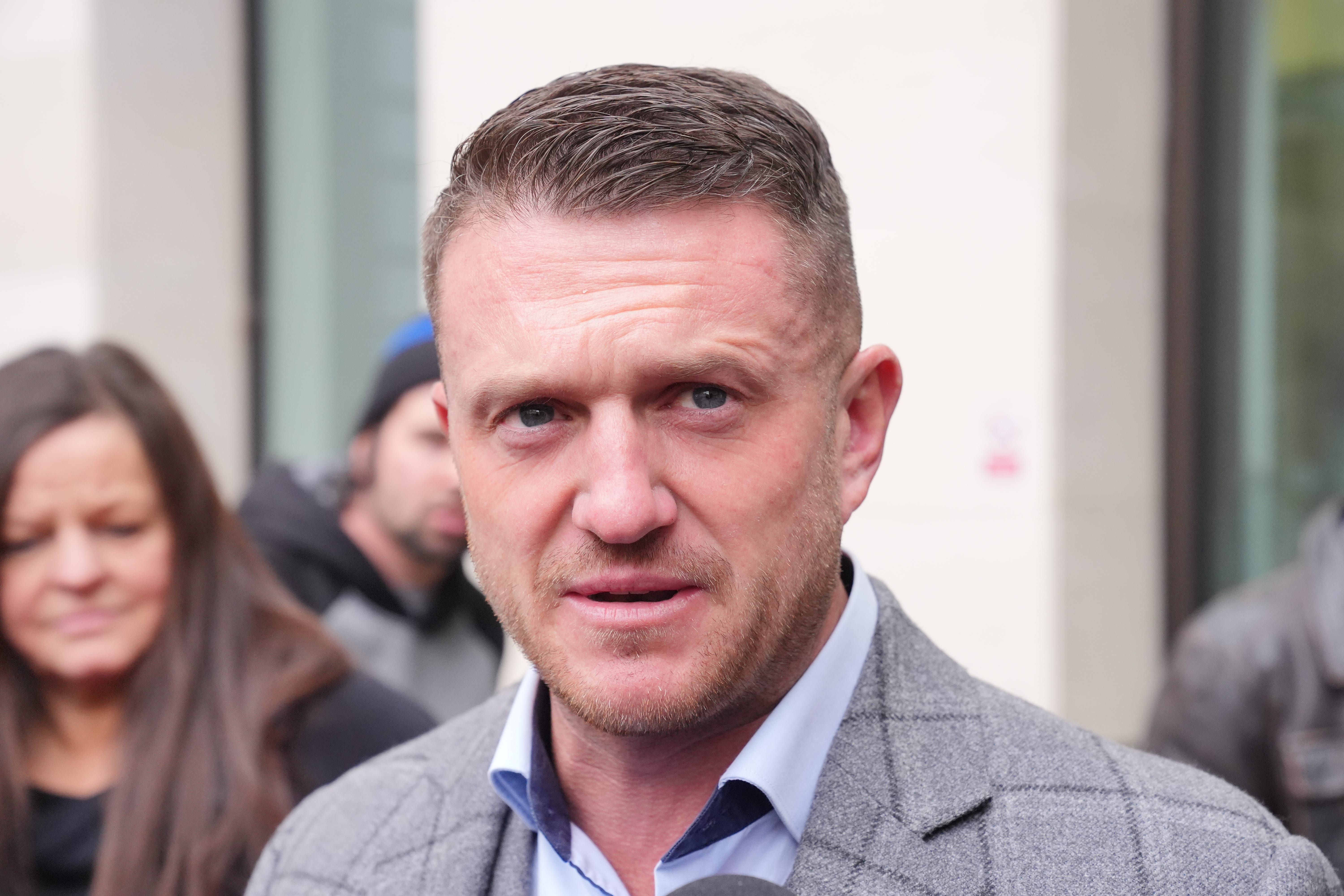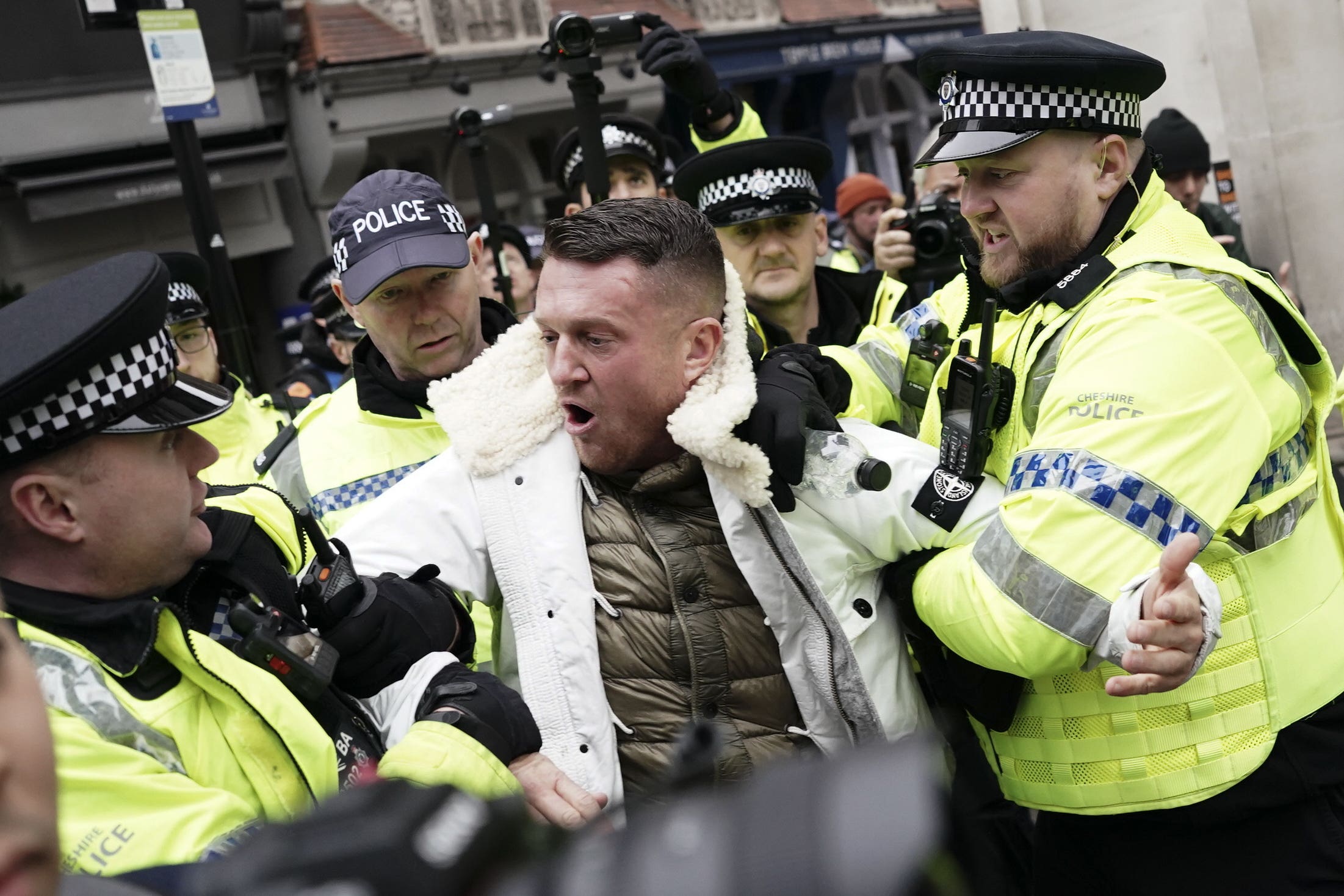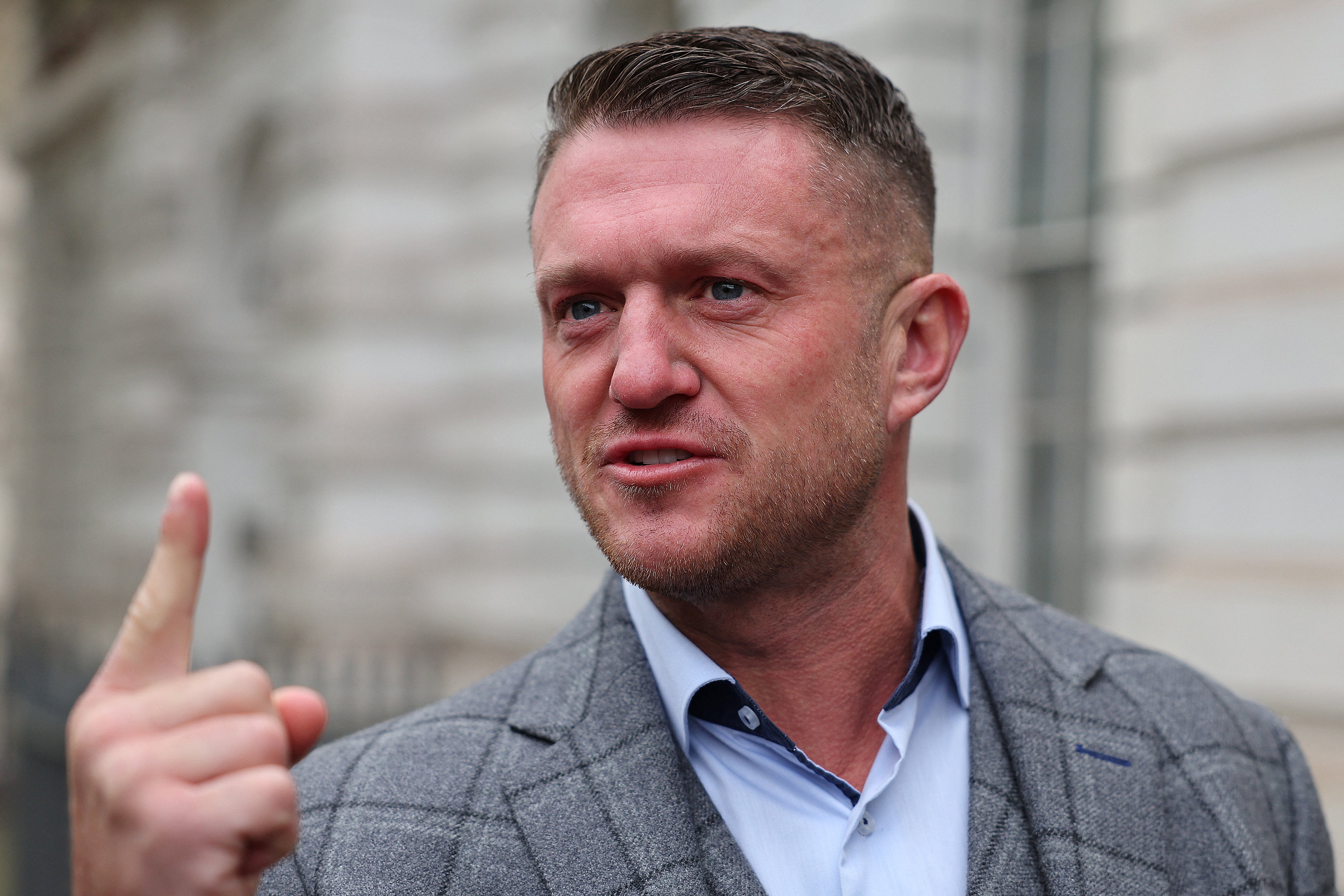Met officer admits mistake on order allegedly breached by Tommy Robinson at march against antisemitism
Robinson was arrested at a march against antisemitism near the Royal Courts of Justice in London

A senior Metropolitan Police officer who signed a dispersal order allegedly breached by Tommy Robinson has admitted it may not have been lawful, after he used the wrong date on the paperwork, a court has heard.
Robinson, 40, whose real name is Stephen Yaxley Lennon, denies failing to comply with a direction to leave an area in Westminster on 26 November last year.
Robinson was arrested at a march against antisemitism near the Royal Courts of Justice in London, where the demonstration began, after organisers said he would not be welcome at the event.
Inspector Steve Parker-Phipps, responsible for policing certain aspects of the protest, imposed a Section 35 order under the Crime and Policing Act 2014 when he thought a “right-wing group” could potentially be attending, the trial at Westminster Magistrates’ Court heard.

The court heard Inspector Parker-Phipps, whose laptop battery was “dying”, put the order in place at 10am on 26 November, but accidentally dated the form for 24 November.
Questioning the inspector, Robinson’s defence lawyer Alisdair Williamson KC said: “This document is not correct is it?
“Can we have any confidence that there was a lawful order in place?”
The officer replied: “No.”
Prosecutor Jonathan Bryan told the court Robinson “became resistant” when ordered to leave the area, and was arrested.
“Organisers of the protest had made it clear they didn’t want his presence,” Mr Bryan said.

“He wouldn’t leave the area.”
During his arrest, officers sprayed Robinson with synthetic pepper spray and handcuffed him.
He uploaded a video of himself with partially closed eyes to social media after the incident.
Other footage of him arguing with police officers was also posted on his Twitter/X account, with Robinson claiming to be present as a journalist at the march.
The officer who read the order to Robinson said he was “upset” and “angry” about being asked to leave and “held on to metal railings so he could not be escorted”.
The trial continues.
